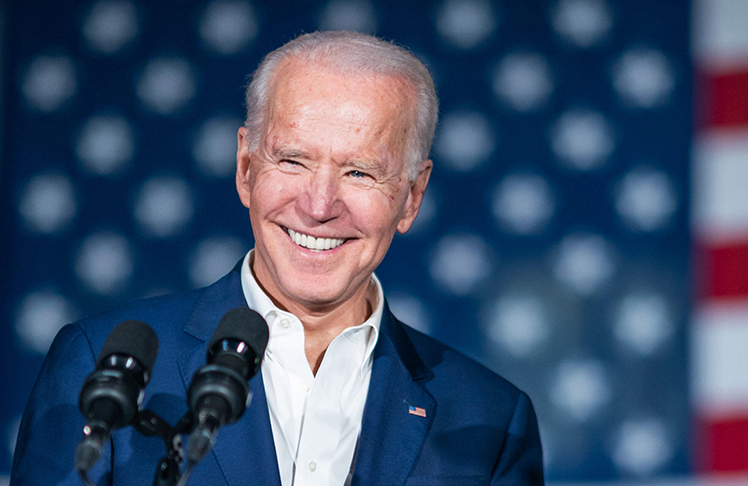
By Barrington M. Salmon
(TriceEdneyWire.com) – On his second day in office, President Joe Biden said bringing COVID-19 under control will be a wartime undertaking.
As such, he said, his administration is marshalling resources as part of a coordinated national plan aiming to confront and defeat COVID-19, which has so far taken the lives of more than 410,000 Americans, more than half of which have been Black and other people of color.
The president said he’s doing what his predecessor failed to do. The coordinated national plan is detailed in a 198-page document. In marked contrast to the prior administration, Biden said the plan he unveiled will be steeped in science. He invoked the Defense Production Act to ensure that there are adequate supplies, and he intends to increase production by working closely with manufacturers. Included in the provisions are plans to develop 100 federal vaccination centers; open a number of mobile vaccination centers, particularly in rural areas; use pharmacies in diverse communities to vaccinate residents; implement a 100-day mask mandate; and vaccinate 100 million Americans in the first 100 days of his presidency.
“Our national strategy will be driven by scientists and public health experts who will regularly speak directly to you, free from political interference as they make decisions strictly on science and public health alone,” the president said in a letter announcing the plan. “Above all, Vice President Harris and I, and our entire Administration, will always be honest and transparent with you about both the good news and the bad. The honest truth is we are still in a dark winter of this pandemic. It will get worse before it gets better.”
He called on the community to help with efforts to end the pandemic: “Families and neighbors will need to continue looking out for one another. We will need health care providers, businesses, civic, religious and civil rights organizations, and unions all rallying together in common purpose and with urgency, purpose, and resolve. We will need to reassert America’s leadership in the world in the fight against this and future public health threats.”
Dr. Michael LeNoir, an Oakland California-based physician, said he heartened by what he’s heard so far.
“This is probably the first national plan we’re seeing,” said Dr. LeNoir. “There are five major pieces including restoring credibility; clear messaging; winning back trust and governance. There is light at the end of the tunnel, but it depends on the length of that tunnel.”
More than 4,100 Americans died on Thursday, January 21 and there were more than 190,000 new cases on this day, illustrating the reality that the United States is the global epicenter of COVID-19 with more than 25 million recorded cases, overwhelming hospitals.
Dr. Rachel R. Hardemon, an assistant professor in the Division of Health Policy and Management at the University of Minnesota’s School of Public Health, echoed Dr. LeNoir’s deep concerns about the effects of COVID-19 on African-Americans, Latinos, Native Americans and other marginalized communities. African-Americans’ ability to deal with the global pandemic is complicated by cultural factors and on communities suffering from state, local and national policies and decisions put in place for centuries, she said.
“Constant stress [and other factors are] what’s harming Black lives, including a susceptibility to Covid-19,” said Dr. Hardeman, a reproductive health equity researcher whose work also examines the potential mental health impacts on Black people who live in communities where unarmed Black people have been killed by police. “What we’re seeing is that we still have a long way to go. I remain very concerned about the impact on Black and brown communities. They recently detected a new strain, a variant that is more infectious than the original coronavirus.”
Dr. LeNoir told Trice Edney Newswire that he remains alarmed and saddened by the length, breadth and devastation of COVID-19 on Black and brown communities. African Americans are the silent workers, the ones on the frontlines who have borne the brunt of the pandemic, he said.
“Americans seem very surprised that these communities are so much at-risk, but we know that anything major always attacks the African-American community,” said Dr. LeNoir, who served as the 114th president of the National Medical Association and has been a physician for 53 years. “Unfortunately, African-Americans are the ones who work at the grocery store and out in public.”
“There’s nothing genetic about it. We do tend to be sicker and this country has never dealt with that. The bigger issue is that these people have had to work in the worse environments. Essential workers should be paid – bus drivers, those Black people cleaning, working in these nursing homes, in people’s homes taking care of their children. Then you have Latinos who often have big families.”
Both doctors said they are pleased in the priorities the Biden administration has focused on, such as expanding testing, contract tracing, and vaccine production. Meanwhile, Dr. LeNoir said as distribution of the vaccine is widened, he hopes members of the public will adhere to recommendations from the Centers for Disease Control and Prevention such as wearing a mask, washing their hands, exercising social distancing and avoiding crowds.















